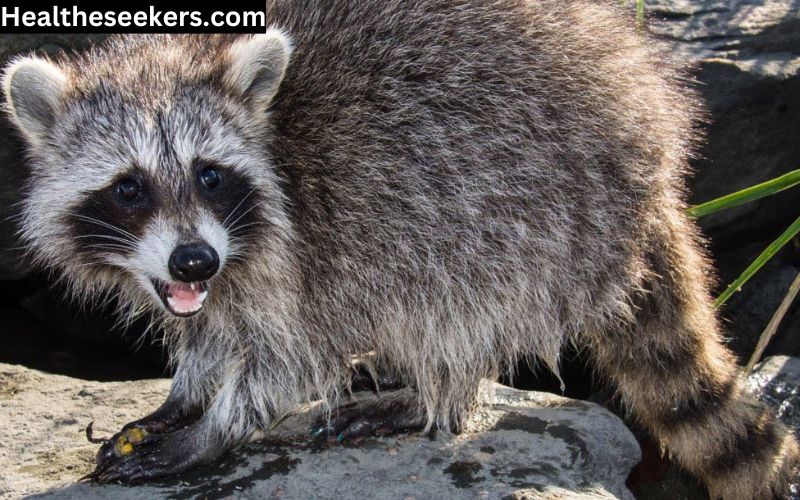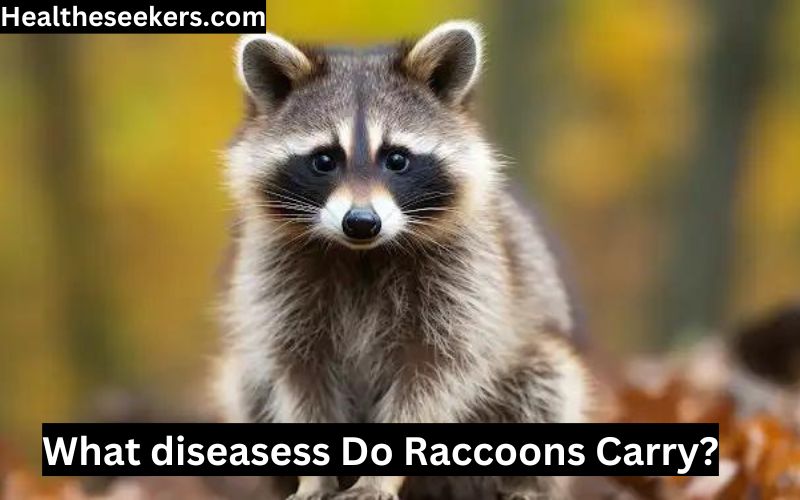Raccoons (Procyon lotor) are fascinating creatures that have adapted remarkably well to various environments, often coming into close contact with human habitats. Despite their endearing appearance and remarkable dexterity, raccoons are also known carriers of several diseases that can pose risks to both humans and domestic animals. Understanding these diseases and their transmission is crucial for managing health risks and ensuring safe interactions with these wild animals.
Overview of Raccoon Behavior and Habitat
Before delving into the diseases raccoons carry, it’s essential to understand their behavior and habitat. Raccoons are omnivorous mammals known for their dexterous front paws and distinctive black mask-like markings around their eyes. They are highly adaptable and can thrive in urban, suburban, and rural environments. Their ability to forage for food and find shelter in diverse locations, including attics, basements, and trash cans, brings them into frequent contact with human environments.
Raccoons are primarily nocturnal and have a diet that includes fruits, nuts, insects, small animals, and even human food waste. Their ability to exploit various food sources and their generalist diet contribute to their widespread presence and interactions with human populations.

Major Diseases Carried by Raccoons
1. Rabies
Overview: Rabies is perhaps the most well-known disease associated with raccoons. It is a viral infection caused by the rabies virus (Rabies lyssavirus), which affects the central nervous system.
Transmission: Rabies is typically transmitted through the bite of an infected animal. The virus is present in the saliva and can enter the body through broken skin or mucous membranes. In raccoons, the virus can also be transmitted through scratches or open wounds.
Symptoms in Raccoons: Infected raccoons may exhibit unusual behaviors, such as aggression, disorientation, and excessive drooling. They may also become more lethargic and display signs of paralysis as the disease progresses.
Symptoms in Humans: Early symptoms in humans include fever, headache, and general malaise. As the disease advances, neurological symptoms such as confusion, agitation, hallucinations, and hydrophobia (fear of water) develop. Once clinical symptoms appear, rabies is almost always fatal, making timely medical intervention critical.
Prevention: Rabies can be prevented through vaccination of pets and avoiding contact with wild animals. If bitten or scratched by a raccoon, immediate medical attention is necessary for post-exposure prophylaxis.
2. Leptospirosis
Overview: Leptospirosis is a bacterial infection caused by the genus Leptospira. The bacteria can be found in soil and water contaminated with the urine of infected animals, including raccoons.
Transmission: Humans and animals can become infected through contact with contaminated water, soil, or through direct contact with the urine of infected animals. In raccoons, leptospirosis may not always cause symptoms, but they can still shed the bacteria in their urine.
Symptoms in Raccoons: Infected raccoons may suffer from fever, vomiting, and jaundice. In severe cases, it can lead to kidney damage or liver failure.
Symptoms in Humans: In humans, leptospirosis can cause a range of symptoms from mild flu-like signs to severe illness. Symptoms include high fever, headache, chills, muscle aches, and red eyes. In severe cases, it can lead to liver damage, kidney failure, and bleeding.
Prevention: Preventive measures include avoiding contact with potentially contaminated water or soil and ensuring proper vaccination of pets. Proper hygiene and wearing protective clothing when handling potentially contaminated materials are also recommended.
3. Baylisascaris Procyonis (Raccoon Roundworm)
Overview: Baylisascaris procyonis is a parasitic roundworm that is commonly found in raccoons. This parasite can pose serious health risks to humans and other animals.
Transmission: The eggs of Baylisascaris procyonis are shed in the feces of infected raccoons and can contaminate soil and water. Humans can become infected through accidental ingestion of these eggs.
Symptoms in Raccoons: In raccoons, the roundworm can cause gastrointestinal issues and may lead to poor growth or lethargy.
Symptoms in Humans: In humans, the infection can cause a condition known as visceral larva migrans (VLM), which occurs when the larvae migrate through various tissues in the body. Symptoms can include abdominal pain, fever, cough, and in severe cases, neurological damage. Ocular larva migrans (OLM) is another condition where the larvae affect the eyes, potentially leading to vision problems or blindness.
Prevention: Preventing roundworm infection involves minimizing exposure to raccoon feces and ensuring proper sanitation in areas where raccoons are known to frequent. Regular deworming of pets and proper disposal of animal waste can also help reduce the risk.
4. Tularemia
Overview: Tularemia is a bacterial infection caused by Francisella tularensis. It is considered a potential bioterrorism agent due to its high infectivity and the severity of the disease.
Transmission: The bacteria can be transmitted through contact with infected animals, their tissues, or through bites from infected insects such as ticks and fleas. Raccoons can serve as a reservoir for the bacteria.
Symptoms in Raccoons: Infected raccoons may show signs of fever, lethargy, and difficulty breathing. They can die within a few days of infection if not treated.
Symptoms in Humans: In humans, tularemia can present in various forms, including ulceroglandular (characterized by skin ulcers and swollen lymph nodes), glandular, oculoglandular, or pneumonic forms. Symptoms include sudden fever, chills, headache, muscle aches, and swollen lymph nodes. Pneumonic tularemia can cause severe respiratory issues and requires prompt medical treatment.
Prevention: Preventive measures include avoiding contact with wild animals and using insect repellents to reduce the risk of tick and flea bites. Proper handling and cooking of game meat can also help prevent infection.
5. Canine Distemper
Overview: Canine distemper is a viral disease caused by the canine distemper virus (CDV), which affects a wide range of carnivorous animals, including raccoons.
Transmission: The virus spreads through respiratory droplets from infected animals. Raccoons can contract the virus from other infected wildlife or domestic pets.
Symptoms in Raccoons: Infected raccoons may exhibit respiratory symptoms such as coughing and nasal discharge, as well as gastrointestinal symptoms like diarrhea. Neurological signs such as seizures and ataxia (lack of coordination) are also common.
Symptoms in Humans: Canine distemper does not affect humans. However, it can have a significant impact on local wildlife populations, including raccoons.
Prevention: Vaccination of domestic pets against distemper is crucial in preventing the spread of the virus to wildlife. Avoiding contact with sick animals and supporting wildlife vaccination programs can also help control the disease.
Zoonotic Risks and Human Health
Raccoons are known carriers of several zoonotic diseases, which are diseases that can be transmitted from animals to humans. Understanding these risks is essential for reducing potential health hazards associated with wildlife encounters.
Rabies is the most concerning zoonotic disease due to its severity and the fact that it is almost always fatal once symptoms appear. Immediate medical treatment following potential exposure is vital to prevent the onset of the disease.
Leptospirosis and tularemia are also significant zoonotic concerns, with both diseases having the potential to cause severe illness in humans. Proper hygiene, protective measures, and prompt medical attention can mitigate the risks associated with these infections.
Baylisascaris procyonis is a particularly dangerous zoonotic parasite due to the potential for severe neurological damage. Reducing exposure to raccoon feces and practicing good sanitation can help prevent infection.
Managing Raccoon Encounters
If you encounter a raccoon or have one in your vicinity, it’s important to manage the situation carefully to minimize health risks. Here are some guidelines:
- Avoid Direct Contact: Do not attempt to handle or feed raccoons. Avoid approaching them, especially if they appear sick or injured.
- Secure Trash and Food Sources: Raccoons are often attracted to garbage and pet food. Secure trash cans with tight-fitting lids and avoid leaving pet food outside.
- Inspect Your Property: Raccoons can enter homes and buildings through small openings. Regularly inspect and seal any potential entry points.
- Seek Professional Help: If you have a raccoon problem or find an injured or sick raccoon, contact wildlife control professionals or local animal control authorities.
- Vaccinate Pets: Ensure that pets, especially dogs and cats, are up to date on their vaccinations, including rabies and other relevant vaccines.
- Educate Yourself and Others: Understanding the risks associated with raccoons and educating others can help prevent health issues and promote safe interactions with wildlife.
What diseases can raccoons transmit to humans?
Raccoons can transmit diseases like rabies, leptospirosis, and Baylisascaris (raccoon roundworm) to humans.
Can raccoons infect pets with diseases?
Yes, raccoons can pass diseases like rabies, leptospirosis, and Baylisascaris to pets, especially if they come into contact with raccoon feces or are bitten.
How can I protect my family from diseases carried by raccoons?
Avoid direct contact with raccoons, secure trash, clean up pet waste, and ensure pets are vaccinated against rabies.
What should I do if I find a sick or injured raccoon?
Do not approach the animal. Contact local animal control or a wildlife rehab center for assistance and keep pets and children away.
See Also: Understanding Lyle Lovett’s Health: A Comprehensive Overview
Conclusion
Raccoons are complex animals with a range of behaviors and characteristics that enable them to thrive in various environments. However, their presence in close proximity to humans can pose health risks due to the diseases they carry. By understanding these diseases, their transmission methods, and how to prevent infection, individuals can take appropriate measures to protect themselves, their families, and their pets.
Proper management of raccoon encounters and maintaining good hygiene practices are essential steps in minimizing the risks associated with these wild animals.




